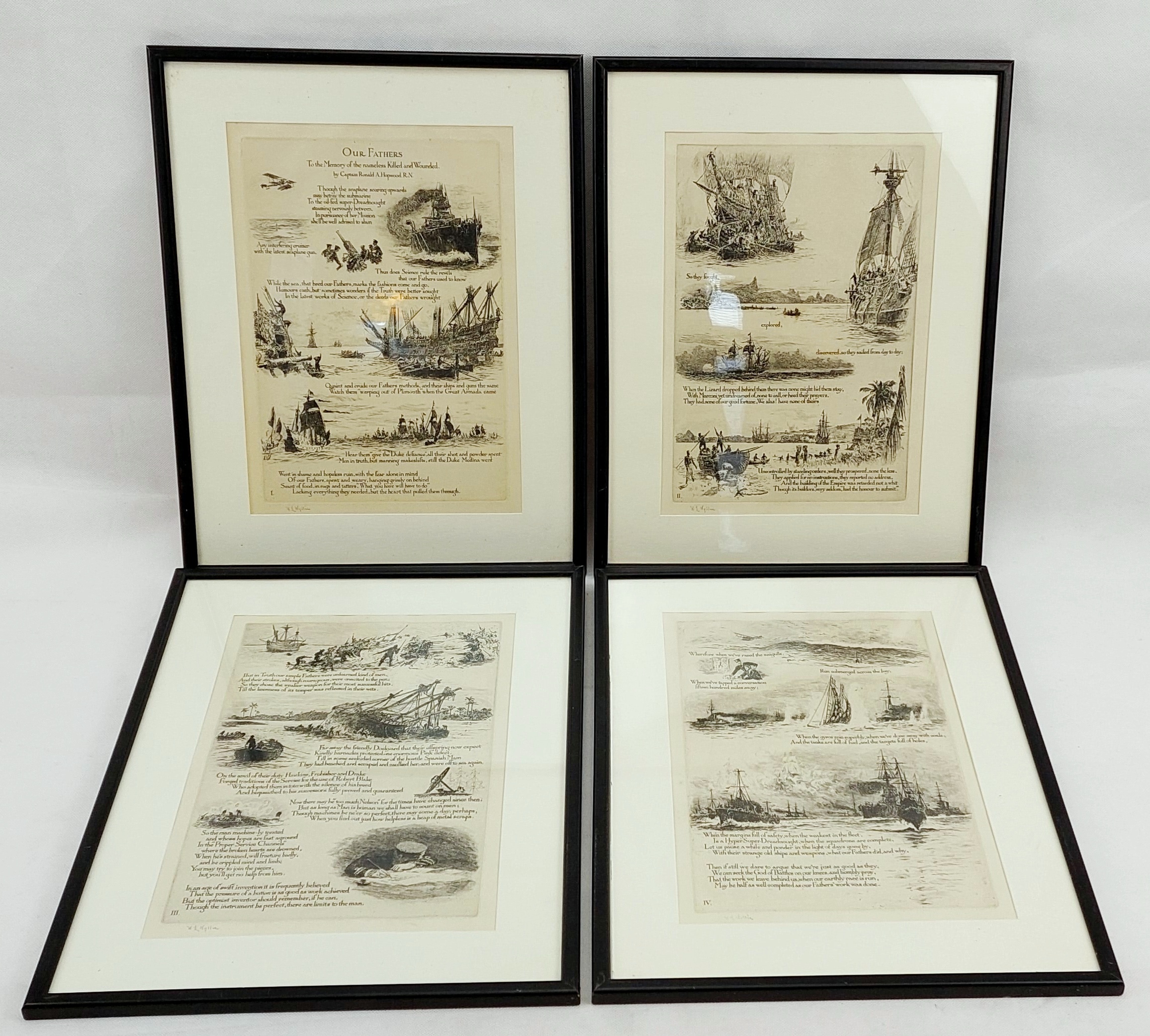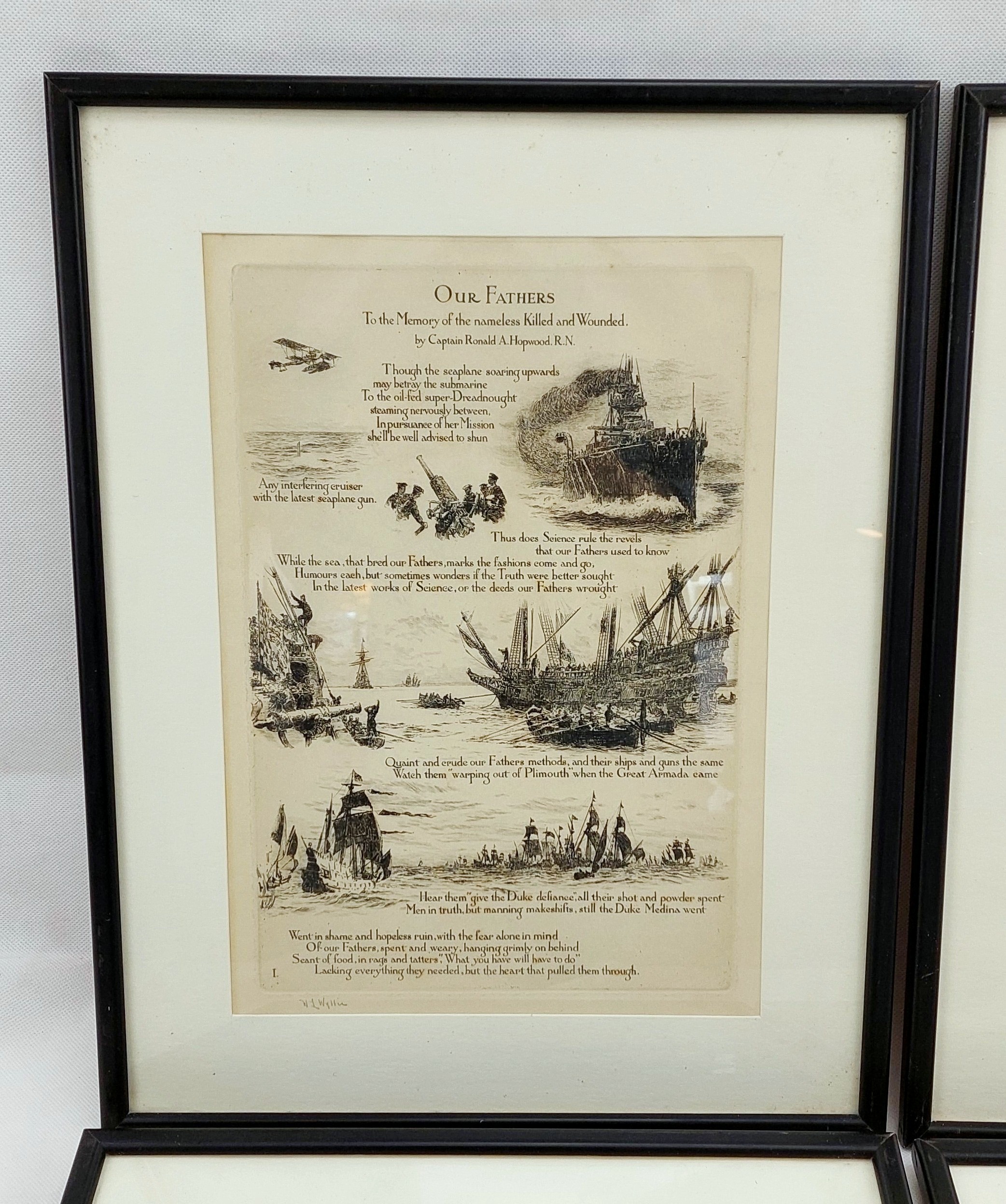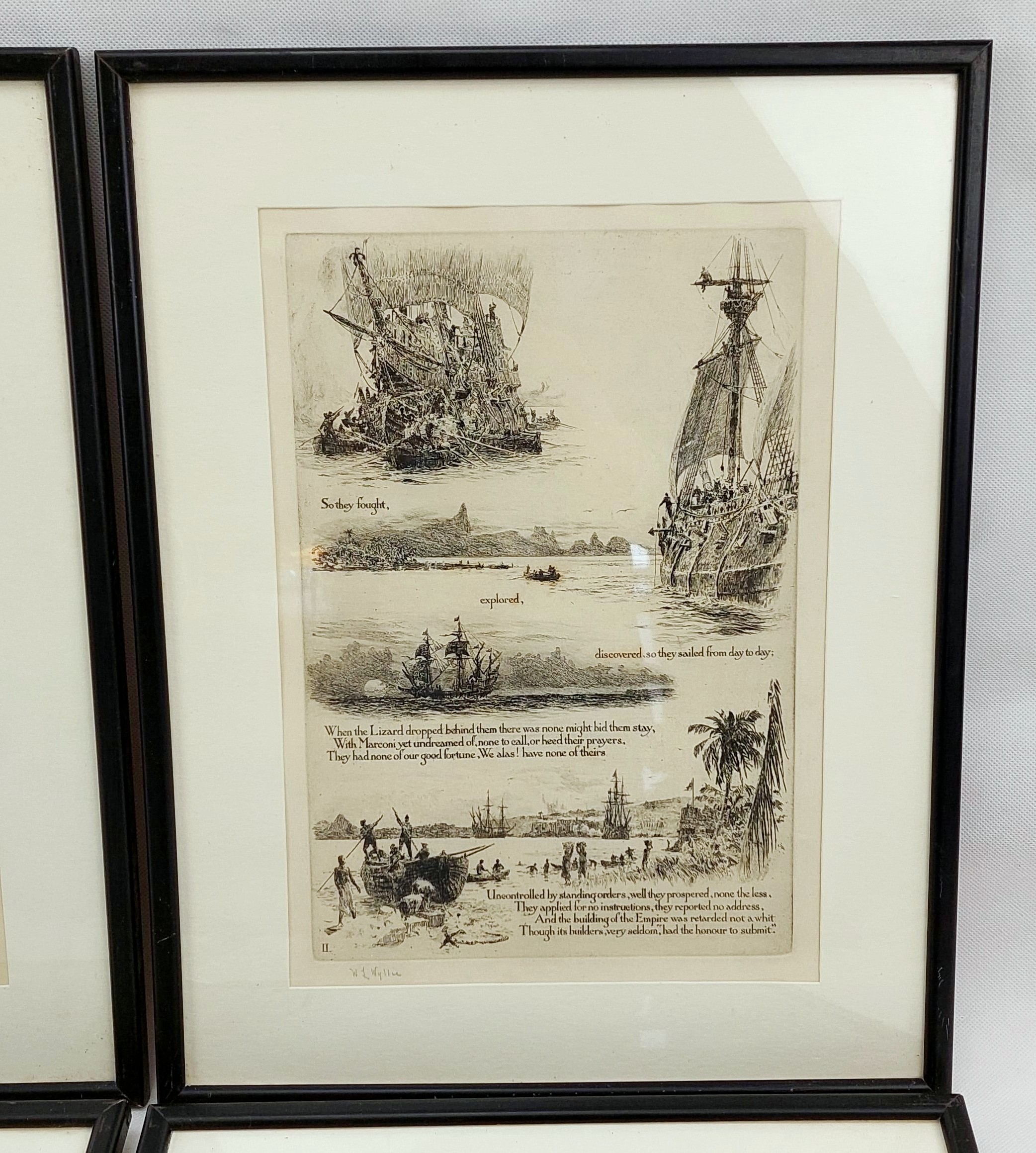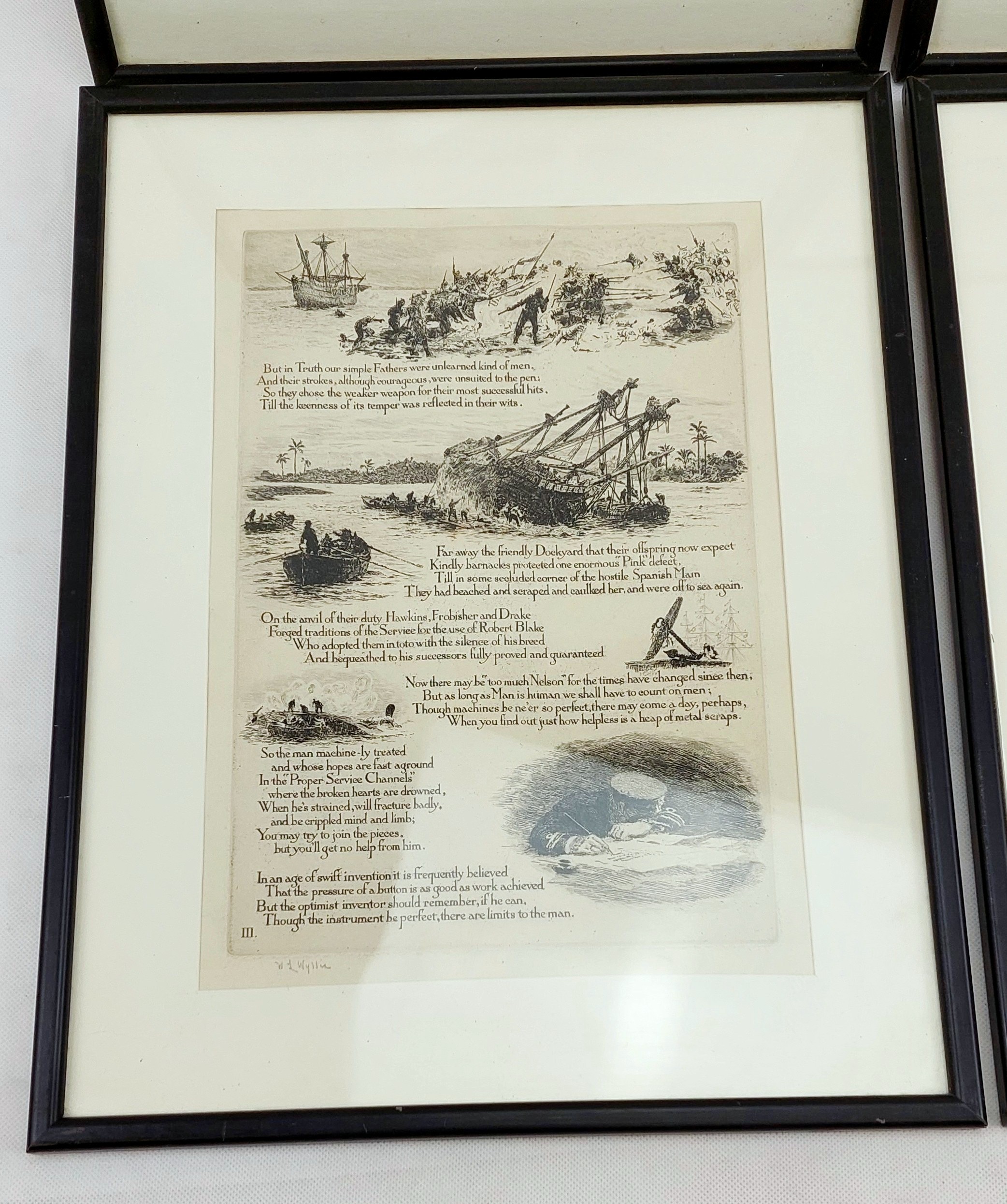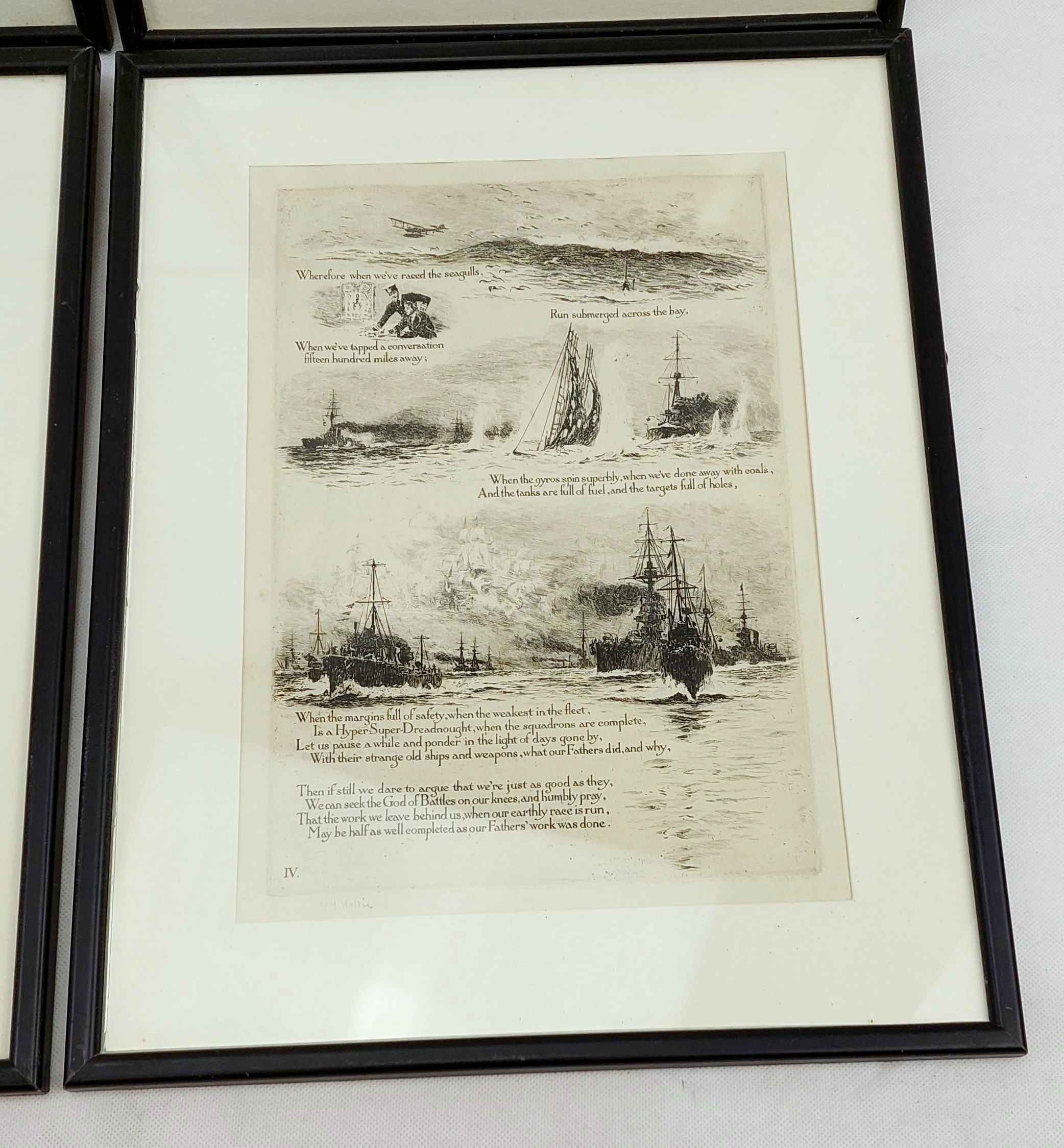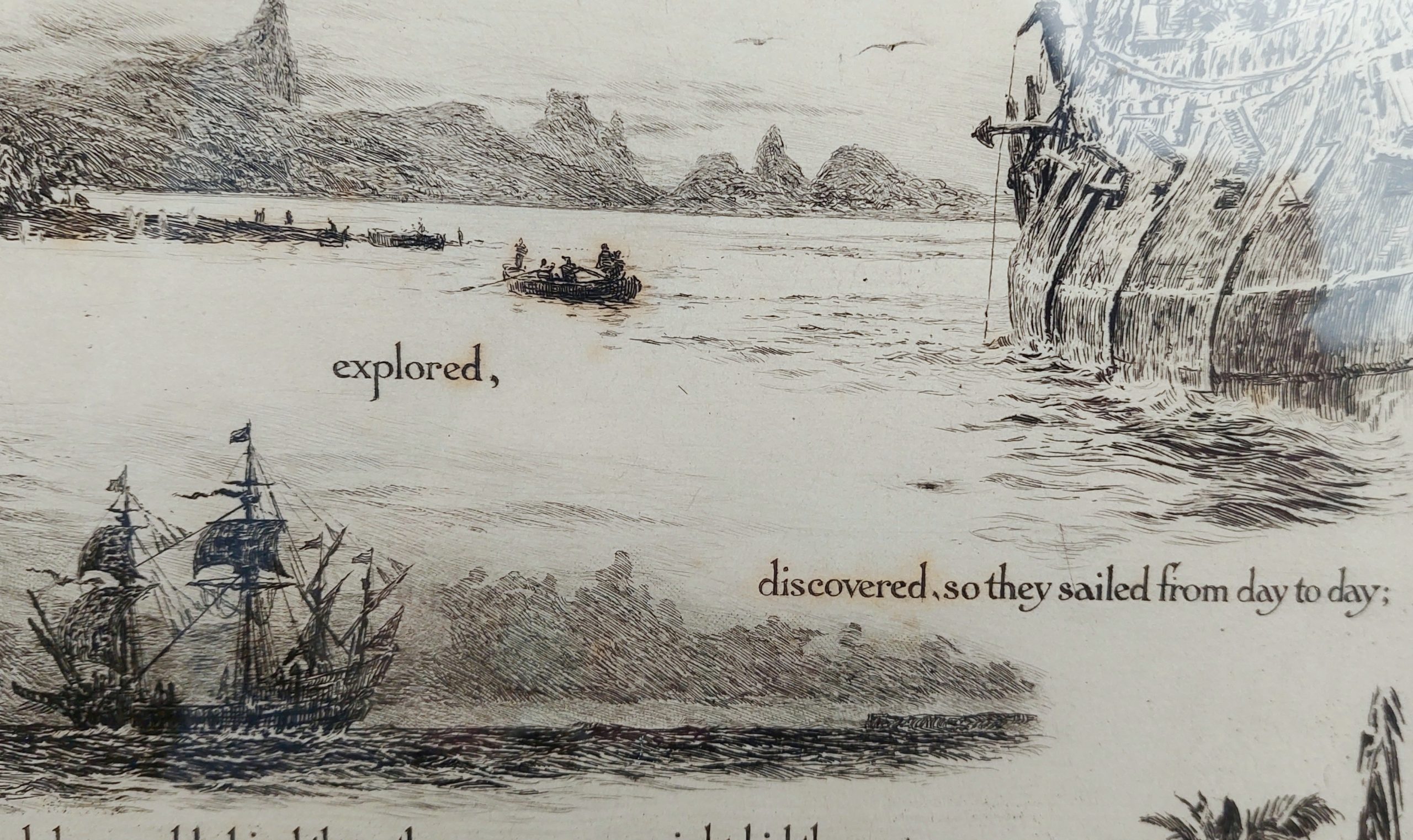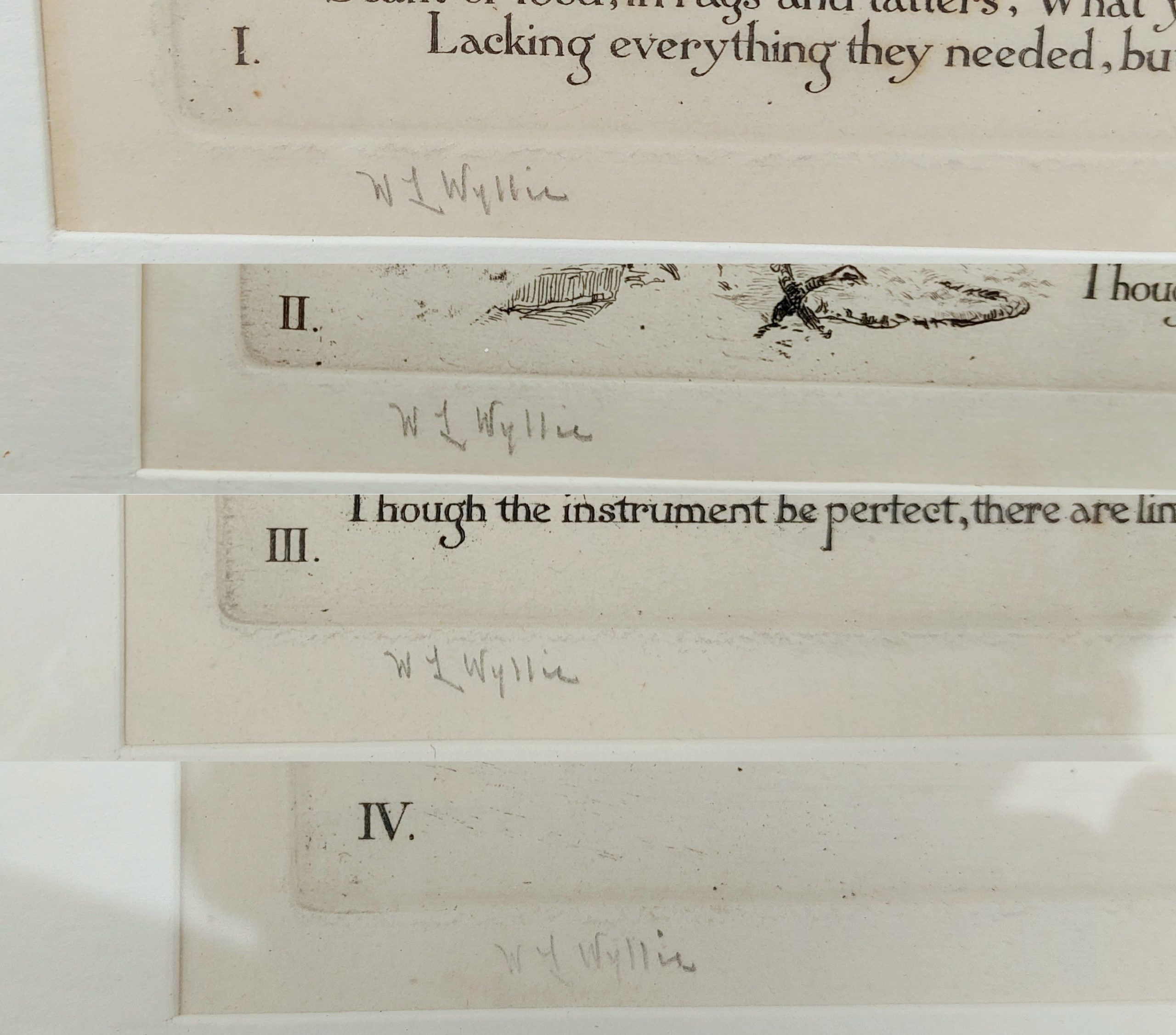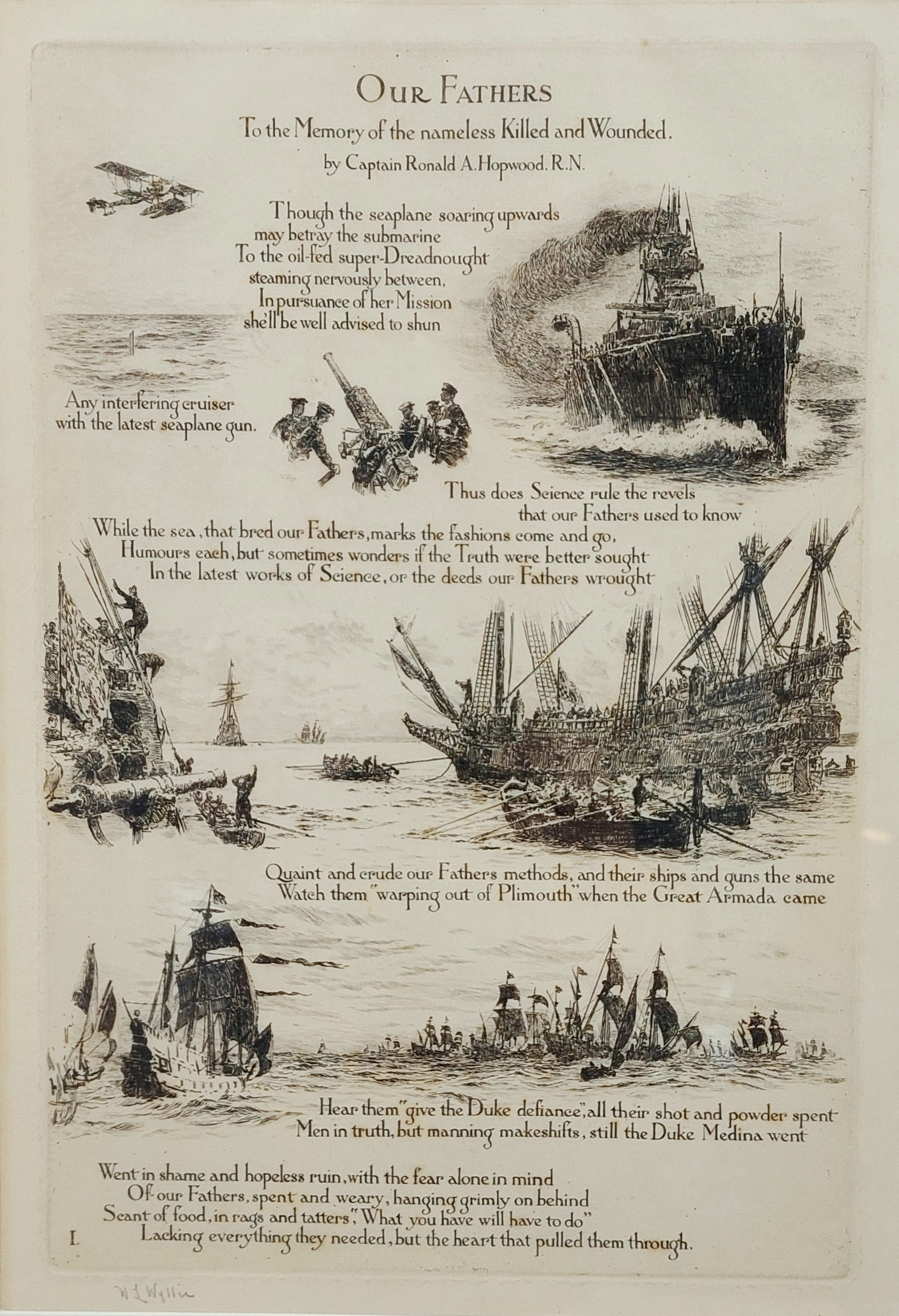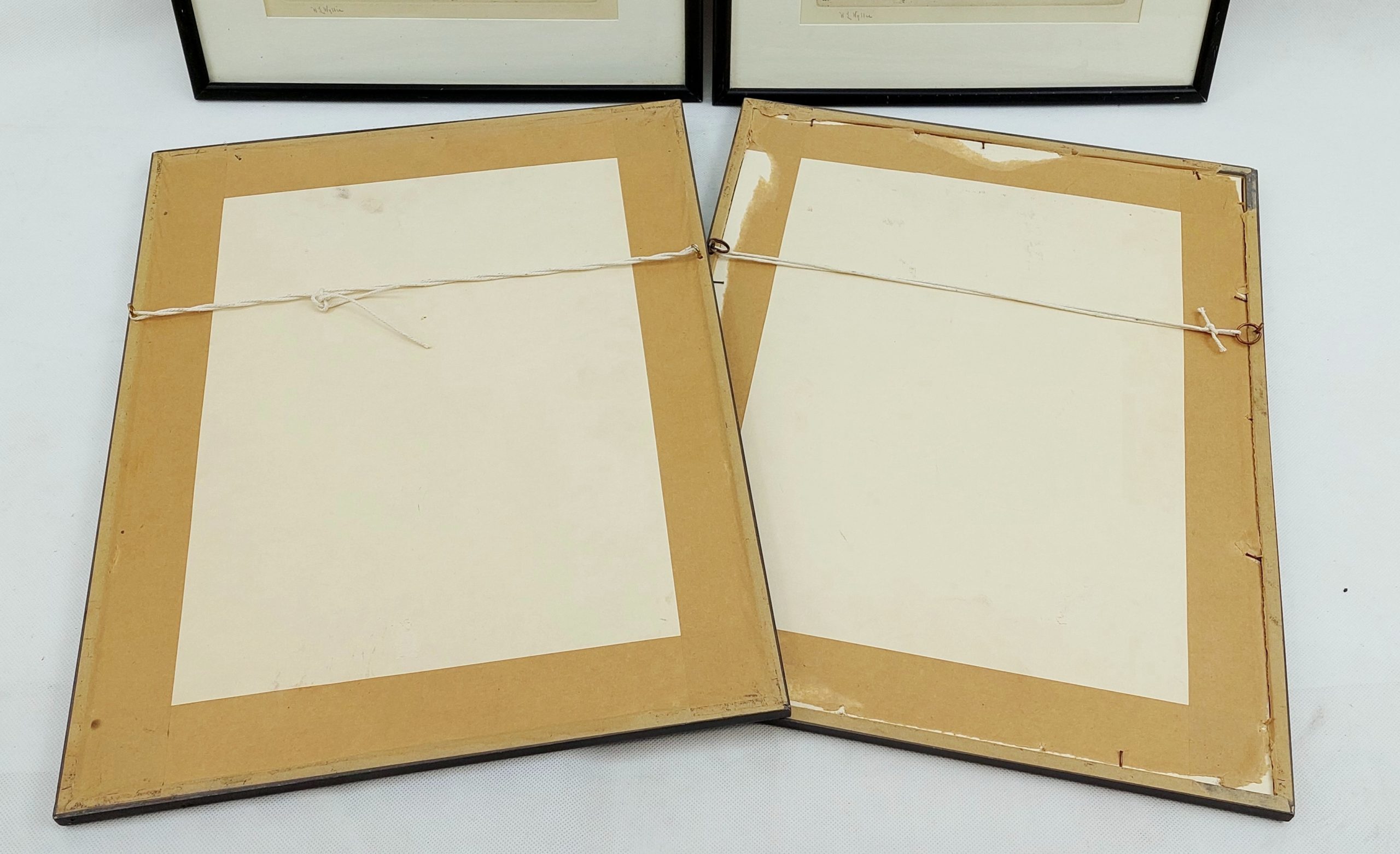~ William Lionel Wyllie ‘Our Fathers’ Series of 4 Framed Etchings #2 ~
A set of 4 original, signed, illustrative maritime etchings by the popular and collectable British maritime artist William Lionel Wyllie.
Features “Our Fathers” the emotive titular poem (in full below) by Captain Hopwood in smart hand drawn script across 4 plates.
Mounted and presented in modern frames.
~ Dimensions ~
Each frame measures 35.5cm (14 inches) by 45.5cm (18 inches).
Each plate measures 21cm (8 ¼ inches) by 31.5cm (12 ½ inches).
The set weighs 4.28 Kg
~ Condition ~
There is a little foxing to plate II (see images), though this is very minor and all other plates are clean.
The etchings are have ever so slightly yellowed over time as to be expected but in general are in really good condition.
The mounts are in good condition with a few light marks.
The frames again are in good condition with some light scratches and some backing tape has been torn/removed, though this does not affect the prints.
~ Poem by Captain Hopwood ~
THOUGH the seaplane, soaring upward, may betray the submarine
To the oil-fed super-Dreadnought, steaming nervously between;
In pursuance of her mission, she’ll be well advised to shun
Any interfering cruiser with the newest seaplane gun.
Thus does Science rule the revels that our Fathers used to know,
While the sea, that bred our Fathers, marks the fashions come and go,
Humours each, but sometimes wonders if the Truth were better sought
In the latest words of Science, or the deeds our Fathers wrought.
Quaint and crude our Fathers’ methods, and their ships and guns the same;
Watch them “warping out of Plymouth” when the Great Armada came
Hear them “give the Duke defiance,” all their shot and powder spent
Men in truth, but manning makeshifts still the Duke Medina went.
Went in shame and hopeless ruin, with the fear alone in mind,
Of our Fathers, spent and weary, hanging grimly on behind;
Scant of food, in rags and tatters, “What you have will have to do”;
Lacking everything they needed, but the heart that pulled them through.
So they fought, explored, discovered, so they sailed from day to day;
When the Lizard dipped behind them there was none might bid them stay.
With Marconi yet undreamed of, none to call, or heed their prayers,
They had none of our good fortune; we, alas! have none of theirs.
Uncontrolled by standing orders, well they prospered, none the less;
They applied for no instructions, they reported no address,
And the building of the Empire was retarded not a whit,
For its builders, very seldom, “Had the honour to submit.”
But in truth our simple Fathers were unlearned kind of men,
And their strokes, although courageous, were unsuited to the pen;
So they chose the weaker weapon for their most successful hits,
Till the keenness of its temper was reflected in their wits.
Far away the friendly Dockyard that their offspring now expect,
Kindly barnacles protected one enormous “Pink” defect;
Till in some secluded corner of the hostile Spanish main,
They had beached, and scraped, and caulked her, and were off to sea again.
On the anvil of their duty, Hawkyns, Frobisher, and Drake
Forged traditions of the Service for the use of Robert Blake,
Who adopted them in toto with the silence of his breed,
And bequeathed to his successors, fully proved and guaranteed.
Now, there may be “too much Nelson,” for the times have changed since then,
But as long as Man is human we shall have to count on men;
Though machines be ne’er so perfect, there may come a day, perhaps,
When you find out just how helpless is a heap of metal scraps.
So the man, machine-ly treated, and whose hopes are fast aground
In the “Proper Service Channels,” where the broken hearts are drowned,
When he’s strained will fracture badly, and be crippled, mind and limb
You may try to join the pieces, but you’ll get no help from him.
In an age of swift invention it is frequently believed
That the pressure of a button is as good as work achieved;
But the optimist inventor should remember, if he can,
Though the instrument be perfect, there are limits to the man.
Wherefore, when we’ve raced the seagulls, run submerged across the Bay,
When we’ve tapped a conversation fifteen hundred miles away,
When the gyros spin superbly, when we’ve done away with coals,
And the’tanks are full of fuel, and the targets full of holes,
When the margin’s full of safety, when the weakest in the fleet
Is a Hyper-Super-Dreadnought, when the squadrons are complete,
Let us pause awhile and ponder, in the light of days gone by,
With their strange old ships and weapons, what our Fathers did, and why.
Then if still we dare to argue that we’re just as good as they,
We can seek the God of Battles on our knees, and humbly pray
That the work we leave behind us, when our earthly race is run,
May be half as well completed as our Fathers’ work was done.


